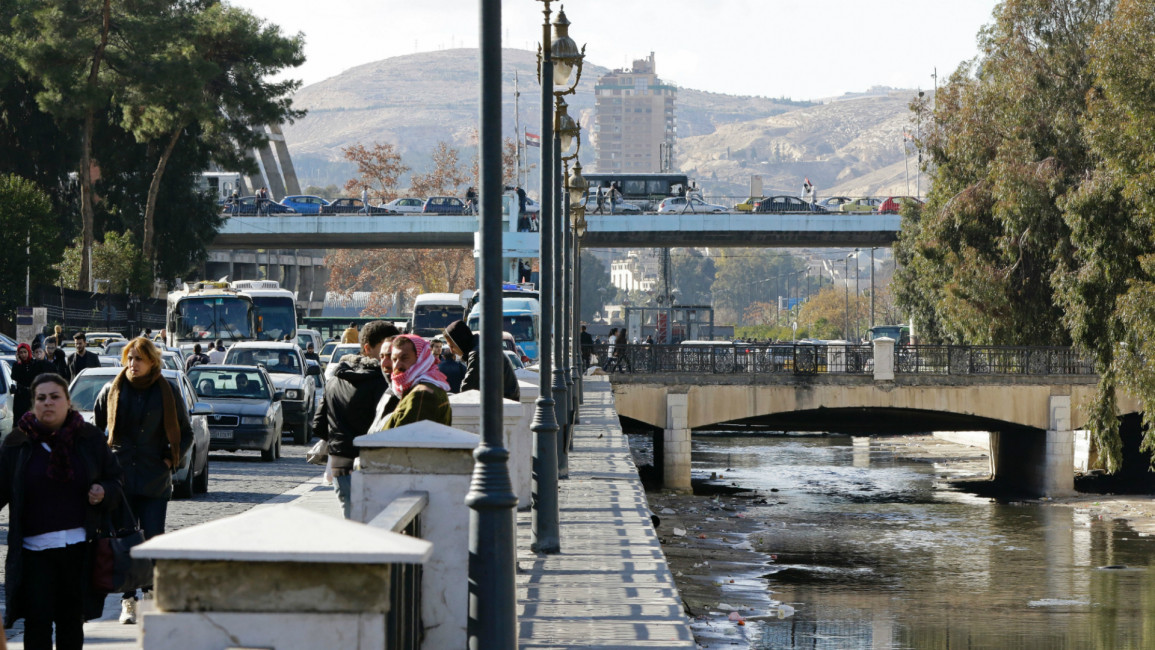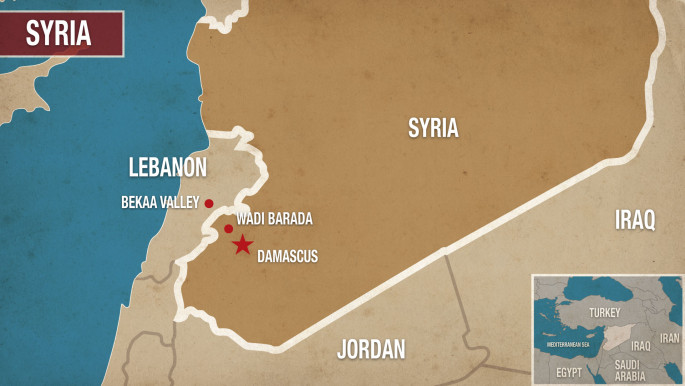'Poison gas' used in regime attacks on Wadi Barada
Activists in the besieged Wadi Barada region, located close to Damascus, said on Thursday that pro-regime forces had deployed chemical agents during an ongoing siege of the area despite the existence of a nationwide ceasefire for Syria.
A ceasefire for Syria brokered by Russia and Turkey came into place on 29 December.
However, it has not prevented ongoing fighting in Wadi Barada, which provides the Syrian capital's main source of water.
Since December 22 this source has been cut amid accusations from regime forces and rebel groups over who is responsible.
According to local sources who spoke to The New Arab's Arabic publication four shells containing "toxic gases" landed in the vicinity of the village of Baseema in Wadi Barada on Thursday, but did not cause any injuries.
The source added that heavy machine gun fire and artillery shelling was ongoing throughout Wednesday night as pro-regime forces, backed by members of the Lebanese Shia paramilitary group Hezbollah, advance on the opposition controlled enclave.
Electricity and cellular connections to the area were also cut, said the source, who additionally stated that four Russian officers who had attempted to enter the Wadi Barada area to monitor the ceasefire agreement had been prevented from doing so by regime and Hezbollah forces.
Through a combination of settlement deals and military offensives, the Syrian regime supported by Russian air raids have taken control of previously rebel-held enclaves and territories around the Syrian capital in recent months.
Such agreements - described as "national reconciliation" by the Syrian regime, and "ethnic cleansing" by the opposition - have taken place elsewhere in Syria, including the al-Waer neighbourhood of Homs and in east Aleppo.
Buoyed by recent victory in Aleppo, and keen to consolidate power around the capital, analysts have predicted that rebel-held Damascus suburbs such as East Ghoutta, Douma and Wadi Barada, which lies on territory linking the Syrian capital with Hezbollah's strongholds in Lebanon's Bekaa valley, could fall next.
Civil society groups in Wadi Barada, including the area's local council, and civil defence team, released a statement earlier this week calling for the deployment of "international observers" to monitor the implementation of the ceasefire agreement in the area.
One member the Syrian Civil Defence, or White Helmets was reportedly killed in pro-regime shelling of the area on Wednesday.
Twitter Post
|
The statement also called on Red Cross and UN teams to enter the valley in order to not only rehabilitate but assess who is responsible for attacks on water infrastructures in the area.
As many as 100,000 civilians are thought to be trapped in Wadi Barada.
Opposition forces have described pro-regime attacks on the area in the past week as clear violations of the Russia-Turkey brokered ceasefire, while Turkey has also called on Iran to put pressure on both Damascus and Hezbollah to cease violating the ceasefire agreement ahead of planned peace talks set to begin in Kazakhstan later this month.




